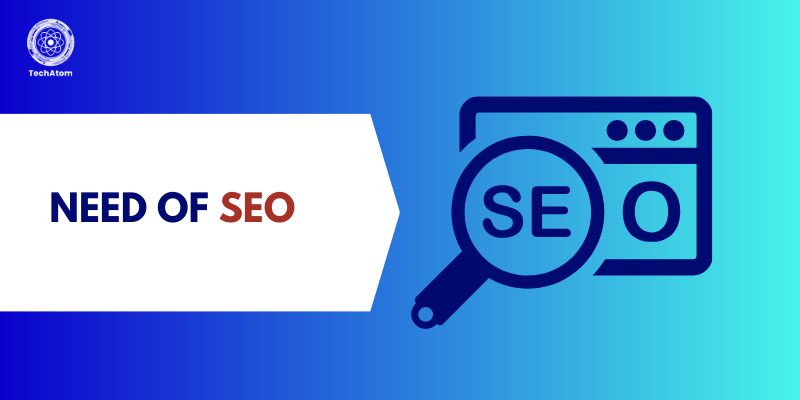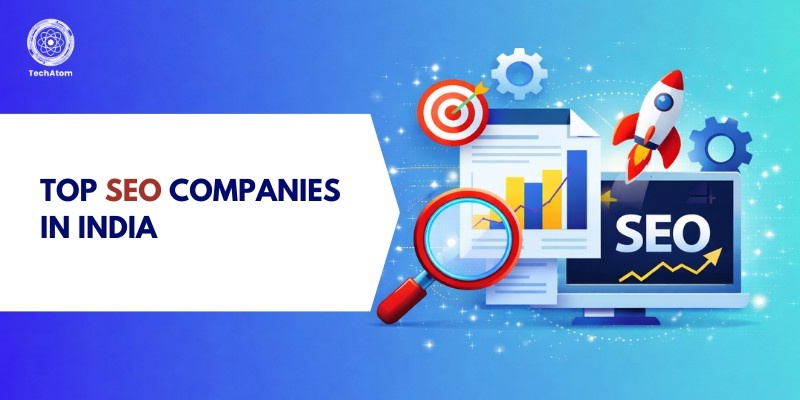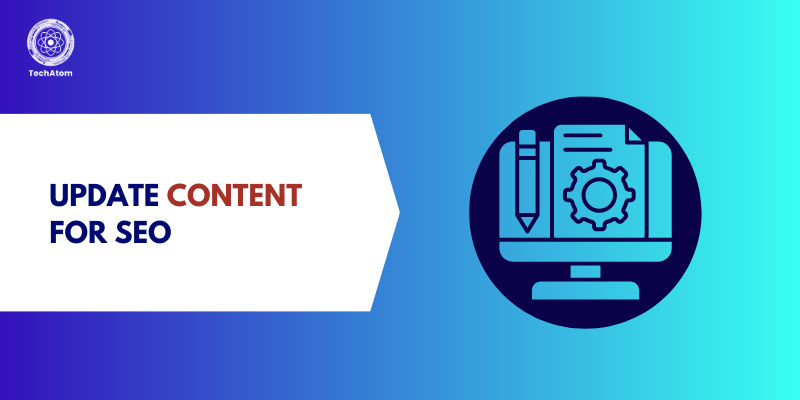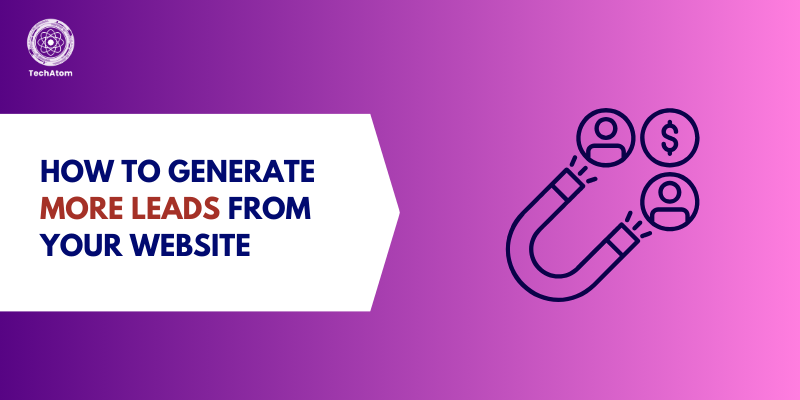In 2026, no business can work wonders without SEO. Without SEO, running a business in a deserted area. This means that even if you have great products or services, your customers can't find you unless you show up where they’re looking. And today most customers are looking on search engines.
According to a research published in BrightEdge, about 68% of online experience start with a search engine. Also, more than half of global website traffic is driven by organic search. This means that SEO is not only preferable but a growth engine.
Why is SEO important now? The answer to this lies in the increasing digital competition, and increasing prices of paid ads every year. On the other hand, SEO helps build long-term visibility, credibility, and trust; compounding over time.
Let's discuss the importance of SEO, future of SEO, SEO trends in 2026, and why ignoring SEO can cost lots to your business.
The State of SEO in 2026
SEO in 2026 is even very different from what SEO was three years ago. Businesses can't afford to say outdated with:
- AI-driven search
- Mobile-first experiences
- Evolving algorithms
According to BrightEdge, 53% of all trackable website traffic comes from SEO or organic search. There are about 8.5 billion daily searches on Google. This makes it clear that the way businesses adapt to changing SEO landscape directly impacts their:
- Visibility
- Leads
- Long-term growth
How Google Algorithms Have Evolved
One thing that is constant about Google is its changing algorithm. Google’s algorithm is evolving from just simple keyword matching to sophisticated systems in the last ten years. But 2026 is proving to be a turning point. Today's Google algorithm can interpret:
- User intent
- Context
- Content quality
Google’s algorithm has integrated with Helpful Content Update and Search Generative Experience (SGE). These shifts in Google’s algorithm prioritize:
- Depth
- Clarity
- Authority
Google’s AI is impacting over 13% of search results, and these numbers will continue to climb.
This makes it important for businesses to rethink their content. No shortcuts or black-hat tactics will work now. Those businesses are dominating organic search rankings who are focusing on E-E-A-T, short for:
- Experience
- Expertise
- Authority
- Trustworthiness
AI and Voice Search Are Mainstream
AI is now not only a “tool” in SEO but is becoming the core of it. Bypassing the traditional search engines, following platforms are influencing the people are searching:
- ChatGPT
- Gemini
- Preplexity
Google is also integrating the AI-driven results at the top of results. So, it is now important for businesses to optimize not only for keywords, but also for answer engines.
Another game changer is voice search. Around 20.5% global users are using voice search. The businesses need to tailor their content for natural, conversational queries. If they aren’t doing this, they are at risk of losing a big slice of traffic.
One perfect example is Domino’s Pizza. They integrated voice search into its ordering system very early. This made the ordering easier on Domino’s. This also helped them capture new customers who want instant, hands-free ordering. Voice search is not only about visibility, but also conversion-ready engagement.
Rise of Mobile-First Indexing and User Experience
Mobile-first indexing is not new in 2026. But how Google ties user experience (UX) directly to rankings is new.
Google’s mobile-first indexing means that your mobile website is everything. If your site loads slowly on the phone, forces endless scrolling or has poor UX, you’re invisible in search rankings. 57% of users don't recommend a business having a poor mobile website.
62.54% of total website traffic came from mobile devices in the last quarter of 2024. And still, most businesses are making a costly mistake by first thinking of a desktop website.
One example is the redesigned mobile site of Walmart. In this redesign, they reduce their load time, boosting conversions. So, mobile-first SEO provides organic ranking along with delivering a seamless user experience.
Why Businesses Cannot Ignore SEO in 2026
SEO is not just a line item in digital marketing products. But, it is the key to customers' choice and trust in online businesses. The online visibility competition is increasing in 2026, so it will be risky to ignore SEO.
SEO drives 1000%+ more traffic than organic social media. So, it is obvious that sEO is very important for growth-minded businesses. The following are the key reasons why companies can’t ignore SEO in 2026.
SEO as a Cost-Effective Marketing Channel
In paid marketing, your website is visible till you spend. While SEO requires only initial investment, working long-term.
According To HubSpot, improving SEO and growing organic visibility is the top marketing priority of 61% of marketers. This is because after securing rankings, your cost-per-click is essentially free.
Zapier, a SaaS company, is generating their leads through SEO content. Without spending on ads, they’re attracting ready-to-convert users by their ranking tutorials.
Long-Term Value of Organic Visibility
Paid ads are ideal for quick wins. But, when you stop them, your traffic dries off. SEO compounds over time.
According to First Page Sage, average ROI of SEO is 748%, while for paid ads it is 36%. You can understand this as, for every $1 invested in SEO ensures returns $7.48 on average.
Canva is a real-world example of this. They have seen a massive growth by using SEO-focused strategy, ranking for design-related keywords and how-to guides. Even investing in paid ads, their organic reach helps them stay ahead in the curve.
Trust and Credibility Through Rankings
Google top results are more trusted by people than ads. According to Search Engine Journal, 75% of users don't scroll past the first page. That means you're invisible to potential customers if you're not ranking organically.
Psychologically, users think that the brands ranked by Google are credible. This is especially important in the industries where trust is very important, such as:
- Health
- Finance
- B2B services
NerdWallet is a perfect example of this. It has built its reputation mainly through SEO. SEO helped them gain traffic and position them as an authority. They ranked consistently in the personal finance queries.
Key Benefits of SEO for Business in 2026
Along with Google rankings, today SEO is also important for growth in an increasingly competitive digital landscape. The SEO benefits for businesses in 2026 are bigger than ever.
Let's discuss the most impactful advantages of SEO.
1. Increased Website Traffic and Leads
Organic traffic in 2026 is the key of online business. BrightEdge reports that 53% of website traffic comes from organic traffic.
Organic traffic in 2026 remains the lifeblood of online business. This makes SEO the single largest source of visitors. Organic traffic is more long-term value as compared to paid ads.
For example, HubSpot drives millions of visitors monthly through:
- SEO-optimized content
- Capturing leads for CRM
- Marketing tools
It is as simple as if you’re not ranking, your competitors are having traffic.
2. Competitive Edge in Crowded Markets
Digital marketing is making a splash in 2026. Every brand is fighting for visibility. But, you get a sustainable edge with SEO. Paid campaigns disappear when the budget is over. But, SEO helps ensure the visibility of your content, products, and services.
For example, Airbnb dominates search related results for travel queries by using SEO. Despite having many travel-related sites available, Airbnb gets an unmatched competitive advantage due to their organic visibility.
3. Improved Local Reach and Visibility
Local SEO for businesses is very important in 2026. Today, more customers are looking for near me results with voice search and mobile-first behavior. According to Google,
In fact, Think with Google reported that 76% of people who search for something nearby on their smartphones visit a business within a day, and 28% of those searches result in a purchase.
This is most helpful for small businesses. Suppose if you're running a bakery and your bakery is amongst the top 3 on Google search"best bakery near me”, you've gained customers’ trust. The following can be translated into foot traffic and sales:
- Optimizing Google Business Profile
- Collecting reviews
- Maintaining local citations
4. Higher ROI Compared to Paid Ads
The major factor is ROI, whether it's SEO or paid ads. You can get quick results using paid ads. But these ads are expensive and short-lived. On the other hand, SEO is something that compounds over time.
For long-term growth, SEO is the most cost-effective digital marketing strategy.
For example, Shopify runs paid campaigns, but its most sustained growth comes from ranking for high-intent queries. Ranking content doesn't require any additional ad spend, and generates traffic and signups in the coming years.
Emerging SEO Strategies for Growth
SEO is no more about only keywords and backlinks. Today, SEO is about adapting to:
- New technologies
- Search behaviors
- Google’s evolving standards
For sustainable growth, you must think about reshaping your SEO strategies for growth in 2026.
The emerging SEO strategies shaping the future of SEO landscape are:
1. AI-Driven Keyword Research and Content Optimization
Artificial intelligence is the heart of digital marketing in 2026. AI is used by tools, such as SurferSEO, Clearscope, and Jasper to:
- Analyze top-ranking content
- Identify semantic gaps
- Recommend data-backed improvements
It is seen in Search Generative Experience (SGE) that AI is increasingly powering Google. SGE blends conversational answers with traditional search results. To satisfy multiple user intents, you need to create comprehensive, context-rich content.
According to a report, 43% of the marketers use AI tools for keyword research and SEO optimization.
2. Importance of E-E-A-T (Experience, Expertise, Authority, Trustworthiness)
Google prioritizes content that demonstrates E-E-A-T. In 2022, there was an addition of “Experience” which means that first-hand insights will be equally important as authority.
For businesses, this means:
- Adding content with author bio
- Publishing case studies, testimonials, or experiences
- Citing by other reputable websites for boosting authority
According to a study by Semrush, pages that demonstrate E-E-A-T are 2.8x more likely to rank in the top 10.
3. Voice and Visual Search Optimization
Voice search is taking a significant portion of organic traffic in 2026 with the rise of voice assistants, such as:
- Siri
- Alexa
- Google Assistant
PwC reports that 65% of people in the age group 25-49 use voice search daily. This makes it important for SEO for small businesses to target local audiences.
Also, there is a rise in visual search. Users are now searching using images instead of text using platforms like Pinterest Lens and Google Lens. This makes it important for businesses to optimize product images with:
- Alt text
- Structured data
- High-quality visuals
4. Video SEO and Short-Form Content
Today, videos can't be ignored. YouTube is the world’s second-largest search engine. According to a study, 40% of Gen Z are now using TikTok or Instagram instead of Google search.
In 2026, it is important to optimize video content with:
- Proper titles
- Descriptions
- Transcripts
- Schema markup
Engagement and rankings can also be boosted by embedding short-form videos into blog posts.
SEO for Different Business Sizes
SEO plays a different but equally vital role in driving growth for every size of business. The benefits of SEO for business doesn’t come from standardized approaches, but it requires strategies that should adapt to scale, goals, and audience.
1. Small Businesses and Local SEO
SEO helps small businesses compete with larger players, cost-effectively. 46% of Google searches are about local information, so local SEO for businesses can make or break visibility.
Some key tactics are:
- Optimizing Google Business Profile
- Collecting customer reviews (boost credibility)
- Using location-specific keywords
- Ensuring consistent NAP across directions
According to a survey by brightLocal, online reviews are equally trusted as personal recommendations by 76% of customers.
2. Enterprise SEO and Global Competition
SEO challenges will increase dramatically for large businesses. Enterprises have to manage:
- Thousands of pages
- Complex technical SEO
- Multilingual websites
Their goal of enterprise SEO is to:
- Maintain global visibility
- Dominate competitive markets
Key strategies for enterprise SEO are:
- Scalable technical SEO
- Content localization for international audiences
- Authority building using digital PR and link-building
- Leveraging AI-driven analytics for predictive keyword trends
3. E-commerce SEO and Product Visibility
In this era of E-commerce, SEO for e-commerce is important for standing out. According to Ahrefs, 68% of online experiences start with a search engine. Your sales can be directly boosted by ranking products and category pages.
Key tactics for e-commerce SEO:
- Optimize descriptions with long-tail keywords
- Using structured data for product schema
- Creating content hubs around buying guides and comparisons
- Enhancing site speed and mobile-first design
According to semrush, 37.5% of e-commerce traffic comes from organic search. This highlights the importance of SEO in retail.
Common SEO Mistakes to Avoid in 2026
Even in 2026, many businesses are making SEO mistakes, limiting their ability to scale. With the fast evolution of search, overlooking key areas can cost:
- Visibility
- Leads
- Revenue
The following are some of the common SEO mistakes:
1. Overlooking Mobile Optimization
Statistica reports that 63% of Google searches come from mobile devices. So, the businesses should avoid the mistake of not optimizing for mobile-first indexing. Google prioritizes mobile usability for ranking. It means that poor mobile experience will directly impact your organic visibility.
If you have a good desktop website, but unresponsive mobile version, your visibility decreases.
2. Ignoring Technical SEO
Businesses generally focus only on content and keywords. They often neglect technical SEO elements like:
- Site speed
- Crawlability
- Schema markup
A site lacking technical SEO can be visible to the search engines, even having great content.
So, along with good content, it is important for sites to have:
- Proper internal linking
- Proper crawling
- Good site speed
3. Relying Too Heavily on Paid Ads
Paid ads (PPC) can bring quick results. But, as a business you can't rely on them at the expense of long-term organic traffic in 2026. The problem with paid ads is that they stop working when you stop paying. But, SEO compounds value over time.
So, along with paid ads, context-driven SEO strategies should be used by businesses. This will help them build sustainable organic lead flow.
4. Treating SEO as a One-Time Effort
One common mistake that most businesses make is that they think SEO is a one-time thing. But for growth, SEO strategies should be evolved continuously as:
- Algorithms shift
- Competitors adapt
- User behavior changes
Businesses that won't keep up with evolving SEO, will be at risk of lagging behind.
You can increase your visibility and engagement by:
- Updating product pages
- AI-driven optimization
- Trend-based content
- Structured data
Future of Search Engine Optimization
SEO now will not be only about chasing rankings, but also about building trust and relevance. The users and search engines both will rely on:
- AI-powered search
- Zero-click results
Personalization will shape the results, SEO will be more important for small businesses and global strategies for large enterprises.
There is a rise in the use of visual and voice search. This means the content will now have to go beyond just text like:
- optimized videos
- Images
- Conversational answers
Now, young audiences are valuing authenticity and transparency. So, businesses showing authenticity and trustworthiness are being rewarded by search engines.
Conclusion
SEO in 2026 doesn't mean only marketing, but it's a growth engine. Along with ranking, SEO today is about staying visible, trusted, and relevant in the ever evolving digital world.
In today's digital world, AI is shaping search, mobile-first experience is dominating, increase in voice and visual search, and trust is driving rankings. So, the businesses that will invest in SEO, will achieve good rankings and visibility tomorrow. They key to excel is same for all size of businesses:
- Stay user-focused
- Stay authentic
- Stay adaptable
Unlike paid ads, SEO will help both small and big brands stand out as it builds:
- Long-term value
- Trust
- Credibility
The future of SEO belongs to the businesses that focus on their users' demands. They must prioritize creating useful, authentic, and engaging content. Those who adapt will thrive, while those who don’t risk being left behind.
Frequently Asked Questions
1. Can AI completely replace SEO experts?
No, they can't. AI tools are capable of making SEO faster and smarter. But they can't replace human strategy, creativity, and understanding of audiences. The best results are when AI will help SEO experts, not replace them.
2. Do startups really need SEO from day one?
Yes, SEO is something you need from the start. Over time, early SEO helps startups build:
- Visibility
- Credibility
- Organic traffic
The sooner you start, the stronger your online presence will be.
3. Is SEO useful for offline/local businesses?
Absolutely. SEO is important for online businesses for their visibility and rankings. But Local SEO helps offline businesses bring in real foot traffic not just online clicks.
4. What role does content marketing play in SEO?
Content is the backbone of SEO. Search engines trust and engage with your brand based on your:
- Blogs
- Videos
- Guides
- Case studies
SEO strategies will fall apart if your content quality is not good.
5. Can SEO help reduce advertising costs?
Yes. Paid ads help till the moment you spend. While SEO helps build long-term visibility. Strong organic rankings help save money in the long run.




